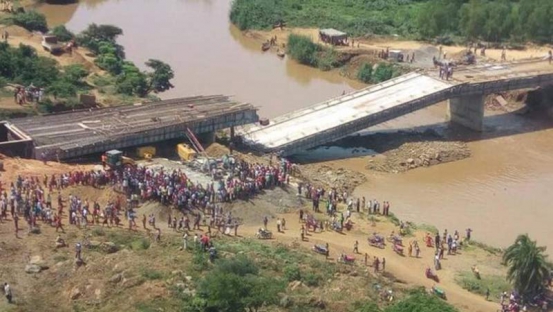×
The Standard e-Paper
Smart Minds Choose Us

Following the collapse of the Sigiri Bridge in Busia County early this year, the contractor has embarked on building the structure afresh, and in strict adherence to the conditions of contract and risk management provisions therein.
The Sigiri Bridge project was conceptualised under the Design, Build and Maintain concept.